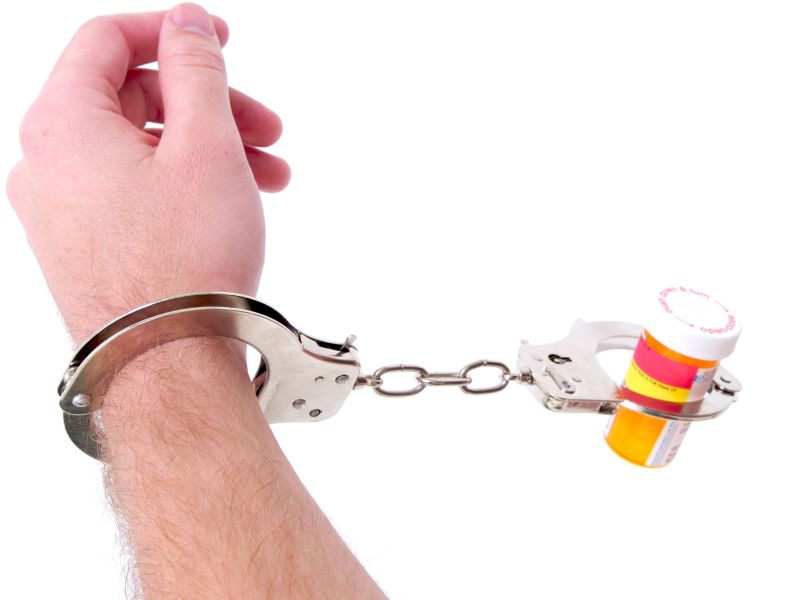Anti-Addiction Meds Can Help Teen Opioid Abusers, Too

WEDNESDAY, Sept. 11, 2019 (HealthDay News) -- The epidemic of opioid addiction and abuse ravaging the United States is also affecting teenagers.
Now, research confirms that anti-addiction medications that help adult abusers can also help teen patients.
"Adolescents with severe opioid use disorder may benefit from a medication as part of a larger comprehensive treatment plan," said study lead author Dr. Deepa Camenga, from the Yale School of Medicine.
Her team noted that while the effectiveness of meds such as methadone, buprenorphine or naltrexone in treating adults with opioid addiction is well-established, the evidence for younger patients has been unclear.
To help remedy that, the Yale researchers analyzed data from 14 studies published between 1973 and 2018. They conclude that teens with opioid addiction can be treated with methadone, buprenorphine (Subutex/Suboxone) or extended-release naltrexone (Vivitrol).
The study was published Sept. 11 in the Journal of Studies on Alcohol and Drugs.
There's a pressing need for such treatments, the researchers noted. "In 2017, 900 adolescents started misusing opioid pain relievers each day," they wrote.
So parents who discover that their child is abusing opioids "should try to consult with an addiction psychiatry or medicine specialist to see if there are additional treatments that may benefit their child," Camenga said in a journal news release.
Also, the dangers of untreated opioid addiction "far outweigh the risks" of treatment with methadone, buprenorphine or naltrexone, the study found.
Too many young addicts are going without treatment, however. According to the study team, only about 2%-5% of teens opioid addiction receive treatment with one of the medications listed in the study, compared with 12%-26% of adults.
"There is a great need to improve adolescents' access to medications for the treatment of [opioid addiction] and to increase workforce capacity to care for these adolescents," the authors concluded.
In general, treatment with methadone, buprenorphine or extended-release naltrexone boosted the number of teens who remained in treatment, decreased their opioid use, and led to greater opioid abstinence, according to the study.
Two experts who weren't involved in the study agreed that teens could benefit.
"This health care condition is one that affects all ages, and understanding that options are available to help treat it is vital," said addiction specialist Dr. Sandeep Kapoor, from Northwell Health in New Hyde Park, N.Y. Doctors need to "open up our mindsets and appreciate that even adolescents -- and younger -- should be considered when speaking of addiction treatment.
"As the researchers comment, the risks of untreated opioid use disorder outweigh the risk profiles of the medications available," Kapoor said. "This is the stark reality, and if medication can serve a role in the overall care plan, this should discussed and explored."
Dr. Yili Huang directs the pain management center at Phelps Hospital in Sleepy Hollow, N.Y. He stressed that teenagers with opioid abuse issues should only receive treatments from well-trained professionals.
For example, Huang said, "although an effective opioid addiction treatment, methadone can be a dangerous medication. Methadone should be administered by very experienced providers because there is very much variability on how long and how much remains in the body." In many cases, buprenorphine might be a safer option, he said.
Also, "[medication] availability is often a challenge," Huang said. "Prescribers need to obtain a waiver to prescribe it to patients and many do not treat adolescents."
The Yale study authors agreed that "research is still needed to understand the optimal treatment duration and how to retain adolescents in treatment."
And in an accompanying journal editorial, Rachel Gonzales-Castaneda from the University of California, Los Angeles, and her colleagues stressed that beating opioid addiction can be a real challenge.
"Relapse occurs in more than half of teens with opioid addiction who are treated with standard approaches," they noted, "so alternatives such a treatment with medication may need to be considered."
The editorialists added that there is a lack information on how opioid treatment medications may interact with other mental or physical disorders or their treatments, and that much more research is needed into teen opioid addiction.
More information
The U.S. Department of Health and Human Services has more on teens and opioids.

The news stories provided in Health News and our Health-E News Newsletter are a service of the nationally syndicated HealthDay® news and information company. Stories refer to national trends and breaking health news, and are not necessarily indicative of or always supported by our facility and providers. This information is provided for informational and educational purposes only, and is not intended to be a substitute for medical advice, diagnosis, or treatment.

